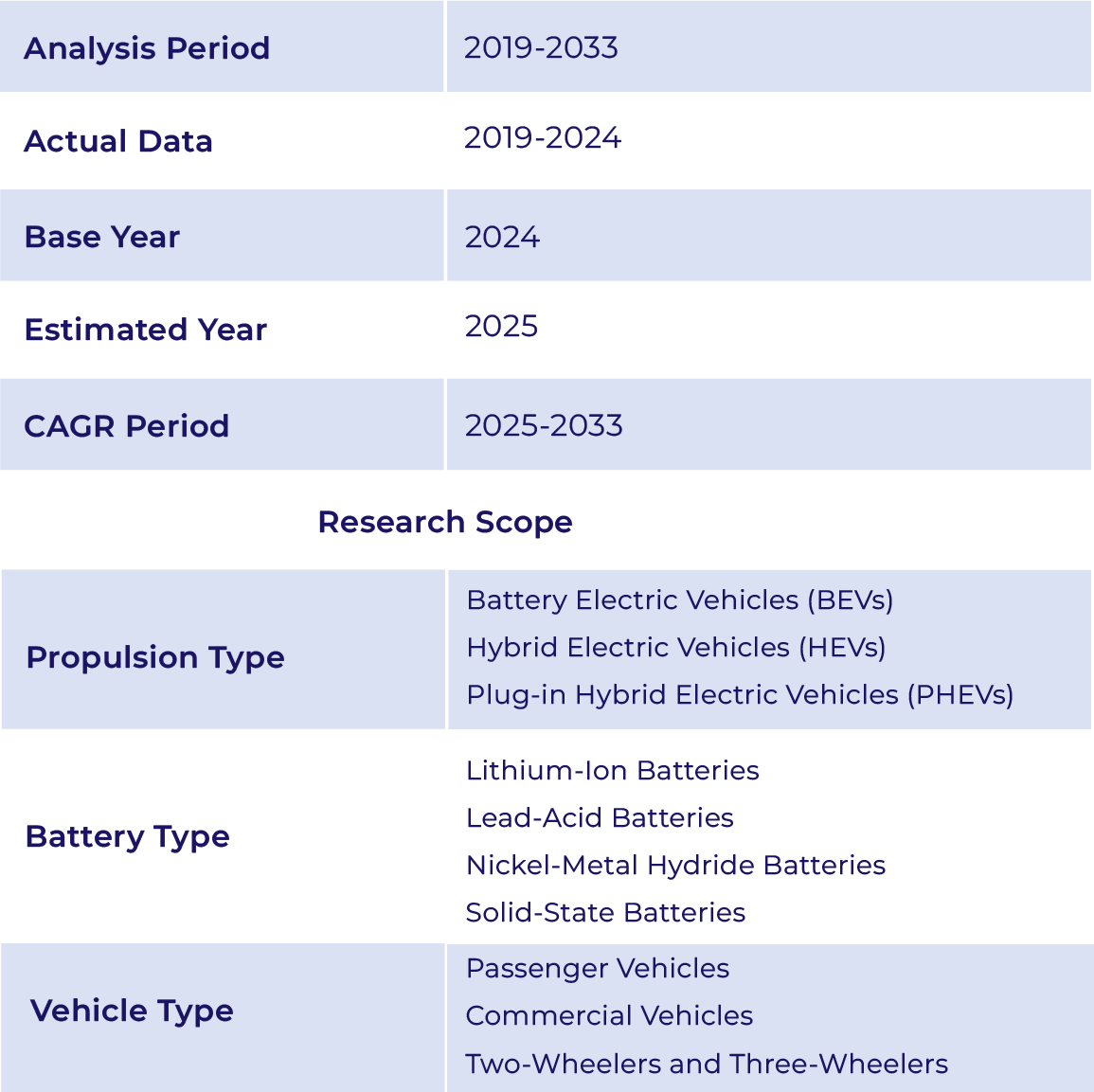South Africa Electric Vehicle Battery Market Growth and Performance
- Spurred by accelerating EV adoption, the South Africa EV battery market saw a XX% surge in 2024, lifting its total market value to US$ XX million.
- The market is forecasted to grow at a steady CAGR of XX% up to 2033, with expectations to hit US$ XX million.
South Africa Electric Vehicle Battery Market Outlook
South Africa is rapidly positioning itself as a pivotal player in the electric vehicle (EV) battery market, leveraging its robust automotive industry and abundant mineral resources. As the global shift towards sustainable transportation accelerates, South Africa's commitment to developing a comprehensive EV ecosystem, including battery production, is evident through substantial government investments and strategic policies. With initiatives aimed at fostering local manufacturing and attracting international partnerships, the country is set to become a significant hub for EV battery production in the coming decade.?
Government Initiatives Fuelling EV Battery Production
The South African government has unveiled a comprehensive plan to bolster the local EV industry, allocating 1 billion rand ($54.27 million) to support the production of new energy vehicles and batteries. This investment is part of the country's broader strategy to transition from internal combustion engine vehicles to electric alternatives by 2035, as outlined in the 2023 Electric Vehicles White Paper. The initiative aims to attract 30 billion rand in private sector investment, enhancing the country's manufacturing capabilities and competitiveness in the global EV market. Additionally, a 150% tax incentive for investments in electric and hydrogen-powered vehicles has been enacted, expected to unlock approximately $27 billion in investments and stimulate growth in the EV sector. ?
Leveraging Mineral Wealth for Battery Manufacturing
South Africa's rich deposits of critical minerals such as lithium, cobalt, and manganese position it advantageously for EV battery production. The government's plan includes developing a regional critical minerals strategy to support the production of EV batteries and solar panels, essential components in the transition to clean energy. By capitalizing on these resources, South Africa aims to establish a self-sustaining supply chain for battery manufacturing, reducing dependency on imports and fostering economic growth through value-added processing and export opportunities.
Infrastructure Development and International Collaboration
Recognizing the importance of infrastructure in EV adoption, South Africa is investing in the development of charging networks and manufacturing facilities. Companies like Zero Carbon Charge are working to establish 120 off-grid EV charging stations across major routes, enhancing the feasibility of electric mobility. Furthermore, international collaborations are on the rise, with Chinese car manufacturers expressing interest in the South African market, potentially bringing in expertise and investment to accelerate the growth of the EV industry.
Challenges and Future Prospects
While the prospects are promising, South Africa faces challenges such as the need for substantial infrastructure development, policy implementation, and market readiness. However, with concerted efforts from the government, private sector, and international partners, the country is well-positioned to overcome these hurdles. The strategic focus on leveraging mineral wealth, coupled with supportive policies and investments, sets the stage for South Africa to emerge as a key player in the global EV battery market, contributing significantly to sustainable transportation solutions.
South Africa Electric Vehicle Battery Market Scope







